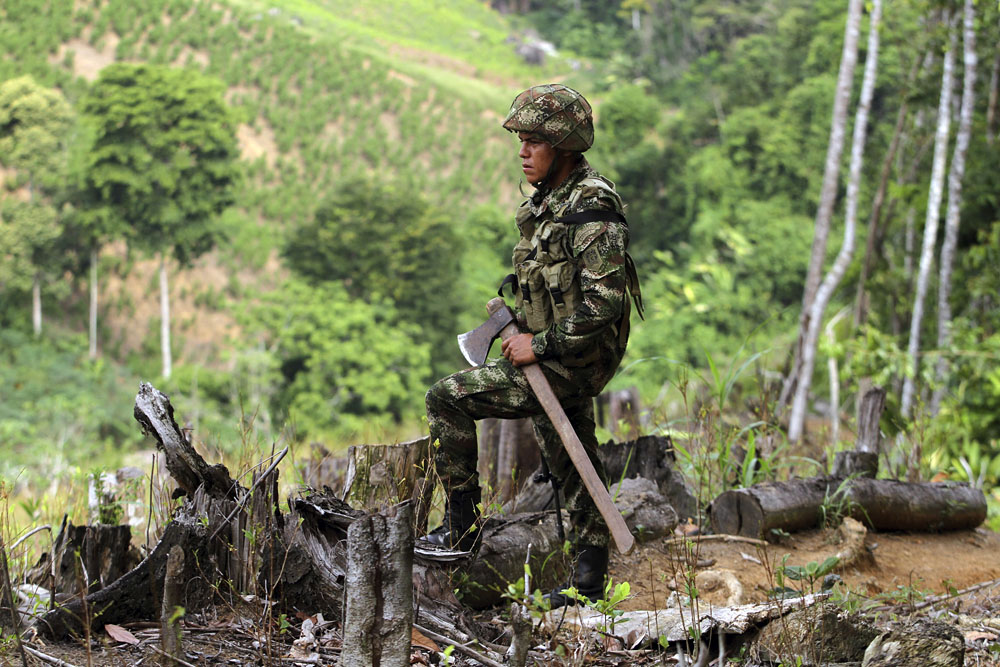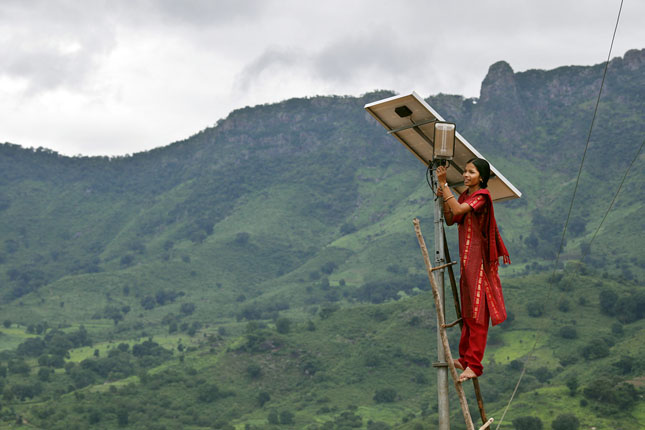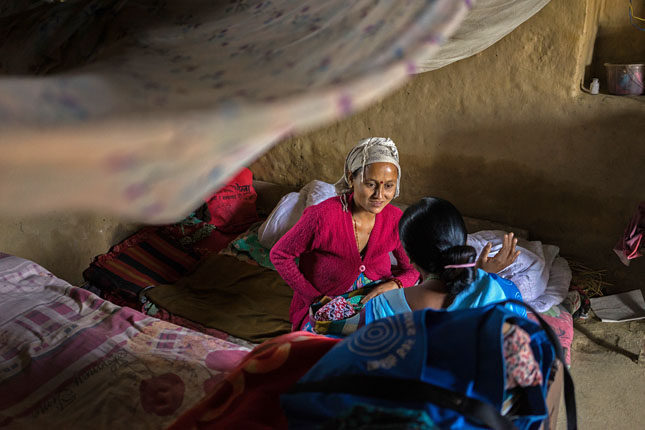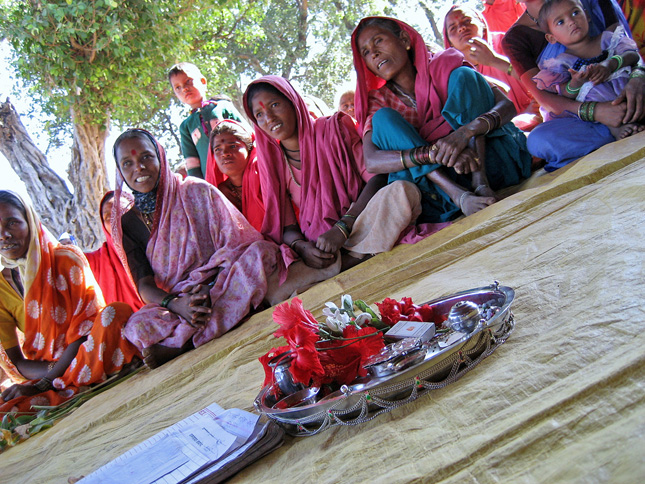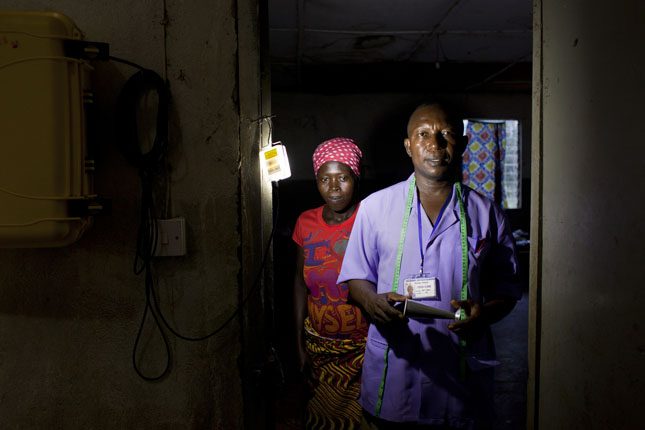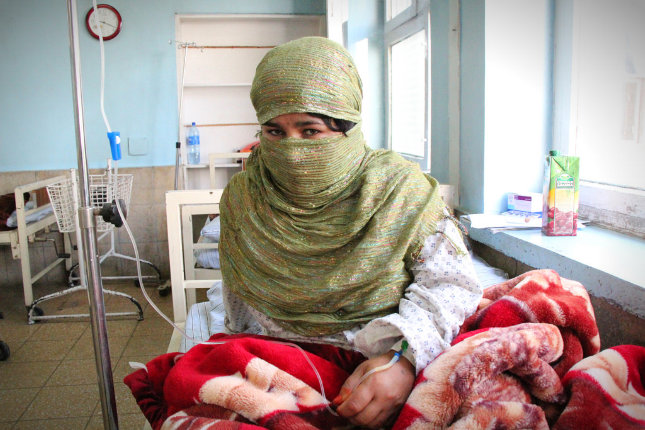-
Sexual and Reproductive Health and Rights Key to Youth Empowerment – But How Do You Put Girls at the Center?
›“If we are serious about results, [the Sustainable Development Goals] must be developed from the perspective of the young person, particularly the adolescent girl. It is about her challenges, her rights, and her future. Займ на карту онлайн. Our collective success begins and ends with her,” said Benoit Kalasa, director of the technical division for the United Nation’s Population Fund at the Wilson Center on October 19. [Video Below]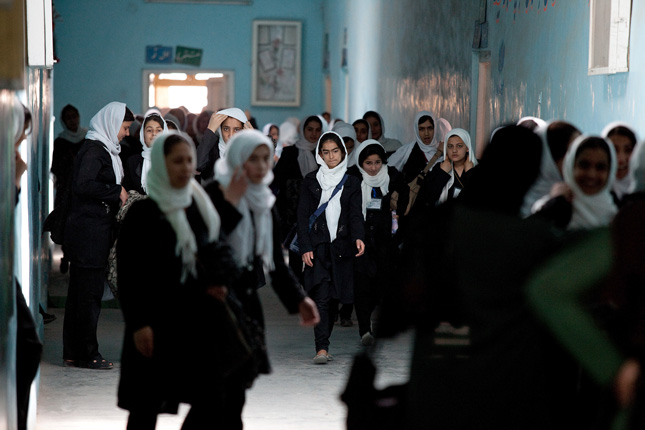
-
Will a Welcome Peace Derail Colombia’s Sustainable Development Plans?
›When Colombia is in the news, it’s not necessarily for the reasons we Colombians would like. We have lived through 50 years of violent conflict. Peace is a very abstract idea to most of us. Despite this we are still some of the happiest people on Earth.
-
Zero-Emission Energy for 1.3 Billion People? Scaling Up Renewable Energy in the Developing World [Part One]
›
The renewable energy sector has reached a critical inflection point where costs are competitive with fossil fuels and investment is ramping up in a big way, said more than a dozen experts at a day-long conference co-hosted by ECSP and the U.S. Agency for International Development’s Office of Global Climate Change on October 27.
-
The Renewable Energy Era Has Already Started
›
The world has entered a new energy era. Last year, for the first time in four decades, the global economy grew without an increase in CO2 emissions, according to the Renewable Energy Policy Network for the 21st Century.
-
A Little Bit of Sugar Helps the Pill Go Down: Resilience, Peace, and Family Planning
›October 26, 2015 // By Roger-Mark De Souza
A recent article by Malcolm Potts, Aafreen Mahmood, and Alisha Graves of the University of California Berkeley’s OASIS Initiative notes that family planning has an important role to play in building peace by increasing women’s empowerment and their agency. “The pill is mightier than the sword,” as they put it.
-
In India, Lower Castes and Tribals Being Left Behind in Maternal Health
›
Maternal mortality causes 56,000 deaths every year in India, accounting for 20 percent of maternal deaths around the world. Women who are born into the lower castes or are tribals – India’s indigenous groups – are especially likely to lack access to quality health care. Over 40 percent of these women also belong to the lowest wealth quintile.
-
Better Training and Support for Midwives Is Saving Women’s Lives
›
The feats that pregnant women perform under some of the most rudimentary conditions are sometimes unimaginable.
-
Previewing the Next Generation of Global Maternal and Newborn Health Programs in Mexico City
›
The Global Maternal Newborn Health Conference, held in Mexico City from October 18-21, will provide a forum to identify, understand, and respond to the most urgent health needs of mothers and newborns. The hope is that it will accelerate momentum for maternal and newborn health in the newly adopted Sustainable Development Goals and put us on a track to end all preventable maternal and newborn deaths.
Showing posts from category SDGs.


